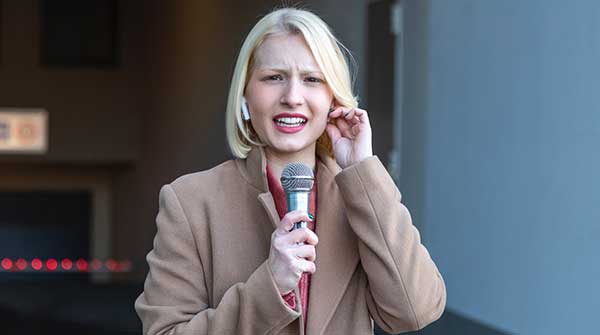You’d think there’d be time to cover the important details of real news rather than trivialize it with Ha Ha moments
 During the Vietnam War, there was something called “bang bang” coverage. Reporters would rush up to an area of action with U.S. troops, camera operators in tow, record gunfire, ducking and narration, and rush back. There was no front, no decisive battles, no real meaning from much of the coverage, but it gave viewers a taste of war.
During the Vietnam War, there was something called “bang bang” coverage. Reporters would rush up to an area of action with U.S. troops, camera operators in tow, record gunfire, ducking and narration, and rush back. There was no front, no decisive battles, no real meaning from much of the coverage, but it gave viewers a taste of war.
Today, we have “Ha Ha” coverage. This coverage involves anchors and reporters recounting a news story while chuckling. For example, Donald Trump took classified documents with him from the White House … and … ( Ha Ha) stored them near a ( Ha Ha) toilet. An Ontario cabinet minister went to Las Vegas … and … (Ha Ha) had a (Ha Ha) mani-pedi.
Stories and chuckling are accompanied by head cocking, eyebrow-raising, and face-making.
| Related Stories |
| It’s time to defund CBC and save taxpayers’ money
|
| Do alternative media genuinely offer diverse perspectives?
|
| Media bias purges the truth in both the U.S. and Canada
|
What’s lost in this coverage is the same as what was lost during the Vietnam War. An American study of freedom of the press after the Second World War defined news in part (I’m paraphrasing) as the day’s events put in a context which gives them meaning. What is the meaning of the toilet’s proximity to classified documents? In what way was a man having a mani-pedi newsworthy? Who paid for the procedure?
This is not news. It’s cocktail party rejoinders, bon mots, punch lines without a preceding joke, and a waste of time. If voters are to come to a judgement on the propriety of the ablutions of cabinet ministers or the storing of documents near a toilet, we must be told why this detail in the story is crucial for us to make a decision. Are classified documents near a urinal acceptable? How about a bidet? What if the cabinet minister had also obtained a bikini wax or had his nose hair trimmed at a barber shop?
How about the Senator with the cash and bars of gold in his possession? Does that make the alleged offence of influence peddling or acting for a foreign power more serious?
To be fair, we’ve been here before on occasion. The famous “pumpkin papers” were documents hidden in a pumpkin on Whittaker Chambers farm, which featured prominently in a Cold War spy case involving future U.S. President Richard Nixon, Alger Hiss, and others. But we got the actual news of the case, and had the pumpkin been a watermelon, the results would have been the same.
There’s an important issue in journalism that Ha Ha coverage raises. In the multi-channel world, with political talk shows all night long, you’d think there’d be time to cover the important details of the story rather than the trivial Ha Ha angles. But no.
As British historian C. Northcote Parkinson wrote, “Work spreads out so as to occupy the time available for its completion.” If you’ve got an hour show, preceded and followed by other hour-long shows – no rush … details can come later … or never. When you only have a five-minute radio newscast or half-hour TV broadcast, better get to the facts.
Bring back the news, I say.
Allan Bonner was the first North American to be awarded an MSc in Risk, Crisis, and Disaster Management. He trained in England and has worked in the field on five continents for 35 years. His latest book is Emergency! – a monograph with 13 other authors on the many crises that occurred during the pandemic.
For interview requests, click here.
The opinions expressed by our columnists and contributors are theirs alone and do not inherently or expressly reflect the views of our publication.
© Troy Media
Troy Media is an editorial content provider to media outlets and its own hosted community news outlets across Canada.


Mr. Bonner,
You wrote:
The famous “pumpkin papers” were documents hidden in a pumpkin on Whittaker Chambers farm, which featured prominently in a Cold War spy case involving future U.S. President Richard Nixon, Alger Hiss, and others. But we got the actual news of the case, and had the pumpkin been a watermelon, the results would have been the same.
I’m not sure how I see the relevance of the Pumpkin Papers. I say so because I myself have not seen press articles that provided “Ha Ha” moments. Stories from early December 1948 are sensational as well as classically inaccurate in both name and content, from Bert Andrews report of the as-yet-unnamed “papers” (“Chambers Said to Have Added Evidence Against Alger Hiss,” WaPo – 03 December 1948 – pp1, 12) onwards) – but not reported with chuckles or humor… Later, there was plenty of derision in the press.
That said, perhaps I have missed something: could you share some articles that added “humor” to their reporting of the Pumpkin Papers?
– David Chambers (grandchild of Whittaker Chambers)